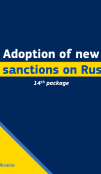‘Ukraine is our home’—Ukrainian IDPs find refuge and hope in social housing in Chortkiv
Chortkiv is a city in the Ternopil region of western Ukraine, with a population of approximately 28,000. It serves as a regional commercial and small-scale manufacturing centre and houses several notable architectural monuments.
Since the beginning of the full-scale invasion, the Chortkiv community has received more than six thousand IDPs from the war-torn east and south of Ukraine. To assist the municipality in accommodating new residents, a dormitory in Chortkiv underwent reconstruction and energy-efficient modernisation as part of the “EU Support for Urgent Housing Needs for Internally Displaced Persons (IDPs) in Ukraine” programme, funded by the European Union and managed by Nefco.
With a budget of EUR 1.96 million, the facility, consisting of a three-storey building connected to a one-storey canteen, was significantly reconstructed. The overhaul included the insulation of the façade and basement, the installation of new windows and doors, the replacement of the roof, the modernisation of the hot and cold-water supply—including a new heat pump for hot water production—sewage, and ventilation systems, the introduction of new biomass boilers, the repair of the food block, and interior finishings.
As a result, 39 smart apartments and 7 dormitory rooms—equipped with all necessary household appliances, kitchen utensils, and bedroom accessories—were created. Furthermore, due to the implementation of the latest energy-efficiency measures, it is expected to achieve significant savings in heat, electricity, and water consumption.
“This is a fantastic project for our small town. We managed to establish excellent cooperation with Nefco, which is not just a bank but an organisation uniting people from different parts of the world that has been working in Ukraine for many years. We are lucky that this work continued even during the war,” shares Volodymyr Shmatko, Mayor of Chortkiv. “This project is valuable for our city, as it has created housing while also bringing money into our local economy—for people who live here and for those who work for local utility companies, small businesses, and the city council. With this case, I wanted to show the whole country and other small communities that such a project can be implemented through bringing different stakeholders together.”
Jocelin Cornet, Head of the Reconstruction, Energy, Infrastructure, and Environment Section of the EU Delegation to Ukraine, highlights the positive impact of the Chortkiv project. “It has significantly improved the lives of displaced Ukrainians by offering stability and support while advancing the country's green transformation and energy transition. More than ever, the EU is focused on supporting Ukraine, addressing war-related humanitarian needs, and providing dignified living conditions for those affected such as those who have fled to Chortkiv.”
“This completed project in Chortkiv not only provides essential services for internally displaced persons but also creates opportunities for newcomers to become part of community life, enriching the city’s collective strength. Nefco is proud to help local municipalities build back greener, better and faster, and to contribute to Ukraine’s energy resilience and independence,” says Ronny Nilsson, Nefco’s Programme Manager.
More than 40 IDP families, consisting of almost a hundred Ukrainians, received keys to their new apartments in the reconstructed dormitory. Among them are Alla, Svitlana, and Iryna, who share their experiences of fleeing from hostilities and building a life in a new home.
Alla
My family—my husband, my daughter, my daughter-in-law, two granddaughters, and I—come from the city of Pokrovsk, Donetsk region. We left our home at the beginning of the full-scale war in March 2022. Initially, we came to Chortkiv to stay with our relatives, but they have since left, and now we are here alone. My son serves in the Armed Forces of Ukraine, and the city shows him great support.
I have been familiar with Chortkiv for a long time because my mother grew up in the nearby village of Bila, and I love this city. The nature and people here are incredible. I wish more people would come to Chortkiv, as the city does not have enough inhabitants.
Since Pokrovsk is one of the hotspots now, we have nowhere to return to. However, life goes on, and you should live it, not sit and wait.
I was familiar with this project from the very beginning, when I submitted an application. When I heard about the job opportunities here, I chose sewing. Back in Pokrovsk, I mastered many different professions but always sewed for myself. When presented with such an opportunity, I could not pass it up. I received professional training from the employment centre for three months, and now I have a seamstress diploma.
I am glad because the sewing workshop is everything I could dream of; everything here is new, modern, and ready to use. Our new apartment is situated in the same building, and it is beautiful. I am incredibly happy.
Svitlana
We lived in the city of Soledar, which is currently under occupation. I worked in Bakhmut, and my granddaughter attended a specialised daycare centre there. We fled in the spring of 2022 as the sounds of gunfire grew closer, and I was worried about her witnessing the hostilities.
The trip was difficult. On the evacuation train, there were 10 people in a compartment, but with God's help, we got to Lviv and then to Chortkiv. This region is familiar to me because I come from the village of Rosohach in the Chortkiv district, but I have lived in the east for most of my life. When the full-scale war started, we came to my brother's place and stayed with him until recently. Now that such an opportunity has presented itself, we are happy to move into our own place. I have already enrolled my granddaughter in a music school, as she is a singer, and I will find other activities for her here.
The conditions here are admirable: everything is very well thought out, accessible, and beautiful. There is also a game room and a laundry room. We are incredibly grateful.
Such projects are very important for Ukraine, and we need more of them because a lot of people are now left without housing, especially those from the occupied cities. For example, two of our apartments burned down. There is nothing left. As it is very difficult for IDPs to find a job and pay the rent, social housing is a great help.
Iryna
We come from Kherson. We spent three weeks there when the full-scale war started, but did not want to live under occupation, so we took our children and left.
First, we came to Lviv, where we lived for about two years. Then my husband received a call from the employment centre and was offered a move to Chortkiv. We relocated this January, rented housing, and applied for social housing for displaced persons. Soon we received a call and were informed that we could move into the new apartment and were offered jobs—me as a hairdresser and my husband as a shoe repairman. We like everything very much. We are very grateful to Nefco for giving us this opportunity and for their support for displaced people.
Our house in Kherson has been hit by three missiles, and one is sticking out of the roof. We are not going to return; we want to stay in Chortkiv forever to work and live. Our whole family likes it here, and the children feel at home. Ukraine is our home!
The reconstruction of housing for IDPs in Chortkiv was implemented under the “EU Support for Urgent Housing Needs for Internally Displaced Persons in Ukraine” action, funded by the European Union and managed by Nefco. The initiative aims to provide accommodation for Ukrainian citizens forced to flee their homes due to Russia’s armed aggression in ten cities across western and central Ukraine, including Chernivtsi, Chortkiv, Ivano-Frankivsk, Khmelnytskyi, Kivertsi, Kovel, Lutsk, Rivne, Zolochiv, and Zviahel.
For further information, please contact:
Ronny Nilsson, Senior Adviser, Nefco
ronny.nilsson@nefco.int, +358 10 618 06 42
Tetiana Vekha, Project Administrator, Nefco
T.Vekha@nefco.org.ua, +380 67 519 80 34
Alexey Dumik, Technical Adviser, Nefco
a.dumik@nefco.org.ua, +380 50 352 3383
About the Neighbourhood Investment Platform (NIP)
The Neighbourhood Investment Platform (NIP) is a mechanism aimed at mobilising additional funding to finance capital-intensive infrastructure projects in EU partner countries covered by the European Neighbourhood Policy (ENP) in sectors such as transport, energy, environment and social development. The NIP also supports the private sector, mainly through investment grants and risk capital operations targeting small and medium-sized enterprises. The NIP strives to pool grant resources from the EU budget and EU Member States and use them to leverage loans from European Financial Institutions as well as contributions from the ENP partner countries themselves. In this way, the EU backs its neighbours’ priorities and supports them in carrying out key investments and boosting economic development.
About Nefco
Nefco, the Nordic Green Bank, is an international financial institution (IFI) founded in 1990. Our task is to work with concrete actions to accelerate the green transition, and we serve the interests of our owners, Denmark, Finland, Iceland, Norway and Sweden. In addition to our own capital, the Nefco Investment Fund, we manage several trust funds on behalf of various donors to support environmental and climate-related projects. By focusing on small and medium-sized projects with tangible results, we demonstrate how climate and environmental projects can be implemented and scaled up in a sustainable and cost-efficient way. We evaluate projects against our own demanding environmental criteria and the EU Taxonomy and asses their impact against the Paris Agreement and the UN Sustainable Development Goals. Over the years, Nefco has implemented over 1,600 private and public projects across different sectors all over the world. Nefco’s headquarters is located in Helsinki, Finland. Read more at www.nefco.int.





